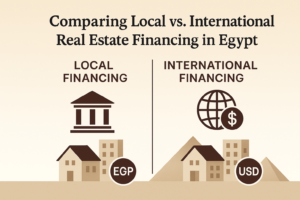Is Real Estate Investment Always Profitable?
Real estate investment is widely regarded as one of the most lucrative and secure investment options. Many investors see it as a stable asset that can provide consistent rental income, capital appreciation, and long-term wealth growth. However, despite its advantages, real estate investment comes with risks that could lead to financial losses if not carefully managed.
Understanding the risks of real estate investment is essential for making informed decisions and ensuring maximum return on investment (ROI). In this guide, we’ll explore the biggest real estate risks, their impact on investors, and strategies to mitigate them.
Major Risks of Real Estate Investment and How to Avoid Them
1. Market Volatility and Price Fluctuations
The real estate market is not immune to economic downturns. Property values can decline due to recessions, inflation, or changing government policies, impacting profitability.
How do we mitigate this risk?
- Conduct market research before purchasing any property.
- Invest in high-demand locations with strong economic growth.
- Diversify your portfolio to reduce exposure to market fluctuations.
2. Liquidity Risk: Difficulty in Selling Property
Unlike stocks or bonds, real estate is not a liquid asset. Selling a property can take months or even years, especially during market downturns.
How do we mitigate this risk?
- Choose properties in high-demand locations for quicker resale.
- Consider rental income as a fallback option until market conditions improve.
- Have an exit strategy before investing in real estate.
3. Unexpected Maintenance and Repair Costs
Owning a property means dealing with regular maintenance, unexpected repairs, and rising operational costs. Neglecting maintenance can lead to property devaluation and increased expenses.
How to mitigate this risk?
- Set aside a maintenance fund for unforeseen expenses.
- Conduct property inspections before buying to assess potential repair costs.
- Invest in new or well-maintained properties to reduce ongoing maintenance expenses.
4. Tenant Issues and Rental Income Risks
Many investors rely on rental income, but late payments, tenant vacancies, or property damage can affect cash flow.
How do we mitigate this risk?
- Screen tenants carefully and check rental history and credit scores.
- Have clear lease agreements outlining payment terms and property rules.
- Invest in high-demand rental areas to reduce vacancy rates.
5. Rising Interest Rates and Mortgage Costs
If you finance your real estate investment with a mortgage, rising interest rates can increase monthly loan payments and reduce profitability.
How do we mitigate this risk?
- Choose fixed-rate mortgages to secure stable payments.
- Refinance if interest rates drop significantly.
- Avoid overleveraging; ensure rental income covers mortgage payments.
6. Legal and Regulatory Risks
Property investments are subject to zoning laws, taxation policies, and government regulations. Unexpected legal issues could delay projects or increase costs.
How do we mitigate this risk?
- Consult a real estate attorney before making any purchase.
- Verify that the property has clear legal documentation.
- Stay updated on local property laws and regulations.
7. Inflation and Rising Property Taxes
Inflation can increase property taxes, maintenance costs, and interest rates, reducing your net profit.
How to mitigate this risk?
- Invest in areas with historically stable property taxes.
- Factor inflation into your long-term financial planning.
- Raise rental rates gradually to match inflationary trends.
8. Overpaying for Properties
Many investors fall into the trap of buying properties at inflated prices, expecting rapid appreciation that never happens.
How do we mitigate this risk?
- Conduct a comparative market analysis (CMA) before purchasing.
- Negotiate aggressively to secure a competitive price.
- Avoid buying based on hype; focus on fundamental investment value.
Best Strategies to Reduce Real Estate Investment Risks
✔ Diversify Investments – Avoid putting all your capital into a single property or location.
✔ Work with Real Estate Experts – Consult property advisors before making big investments.
✔ Have a Solid Financial Plan – Maintain an emergency fund to cover unexpected expenses.
✔ Monitor Market Trends – Stay informed about real estate cycles and economic conditions.
✔ Invest in Growth Areas – Choose locations with strong demand, infrastructure, and business activity.
Frequently Asked Questions (FAQs)
1. Is real estate investing risky?
Yes, like any investment, real estate has risks, but with proper planning, they can be minimized.
2. How can I reduce risk in real estate investment?
Diversify your portfolio, research the market, and invest in high-demand areas to reduce risk.
3. Can real estate prices go down?
Yes, market fluctuations, economic downturns, or policy changes can lead to temporary declines in property values.
4. What is the safest type of real estate investment?
Long-term rental properties in prime locations offer stable returns with minimal risk.
5. Should I invest in real estate during inflation?
Yes, real estate is a hedge against inflation, as property values and rental rates tend to rise over time.
Secure Your Real Estate Investment with Consult
Looking to invest safely and profitably in real estate? Consult offers:
✔ Market research and risk assessment
✔ Exclusive property deals with high ROI
✔ Expert guidance on portfolio diversification
Contact us today to get a free consultation and start investing in real estate with confidence

















